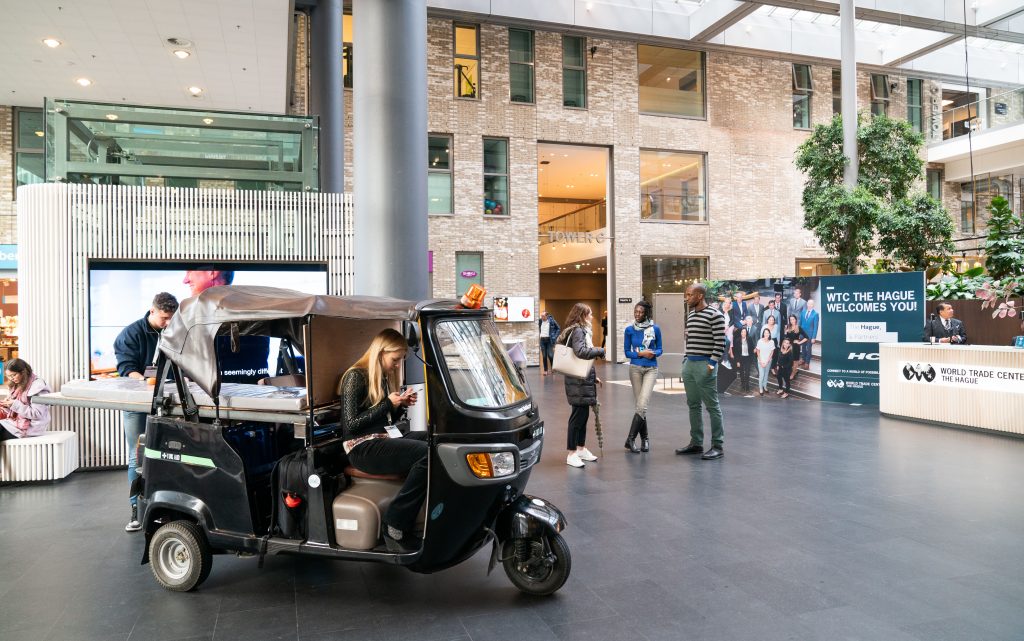Tukaid, a healthtech startup, is set to launch its tricycle ambulance service in Nigeria this year. With this service, the startup aims to provide better and faster emergency care in places where normal ambulances are not readily available.
Tricycles, popularly called ‘Tuk-tuk’ in Eastern Africa or ‘Keke’ in Nigeria, are 3 wheeled vehicles that are a common form of urban transport in many underdeveloped countries of the world.
Tukaid, founded by Victoria Martynova, Jamie Boon and Edwin de Wit, turns these normal tricycles into rapid response ‘Tuk-tuk Ambulances’ for use in less economically developed areas.
How Does TukAid Work?
Despite the small size of a tricycle, the 3 Industrial Design Engineering students at the Hague University of Applied Science have found a way to fit it with the necessary medical equipments.


A typical Tukaid ambulance is fitted with medical and technical equipment with a made-to-measure stretcher. The resulting vehicle could be used in emergency situations to evacuate casualties from a building collapse, weave around traffic and narrow paths and other places traditional ambulance may not be able to get to.
Tukaid can also be effective in situations where people, including pregnant women, need to be transported from a rural area to hospital.
Looking at the healthtech space in Nigeria, Tukaid would be a welcome development as tricycles could easily access the more remote parts of the country than regular ambulances. And going by it’s working model, Tukaid would likely launch in less economically developed areas with limited access to regular ambulances.
However, it will be interesting to see how Turkaid tricycles fare when someone with a critical condition needs to quickly get to the hospital. Many roads in Nigeria are terrible especially during the rainy seasons. Even on regular Nigerian roads, tricycles are usually pretty slow.
It would most definitely be slower when carrying a patient on an extremely tough terrain.
It could also face several logistics problems usually associated with economically backward areas like terrible mobile and data network and fuelling problems because filling stations can be very scarce in rural areas which increases the possibility of being stranded with an emergency patient on board.
There could also be a problem of profitability as not a considerable amount of low income earners will be willing and able to pay for such a service. This could in turn affect operations, wage payments and the rest
Turkaid should also expect to face competition from other healthtech startups offering similar services such as Flying Doctors, an air ambulance service.






